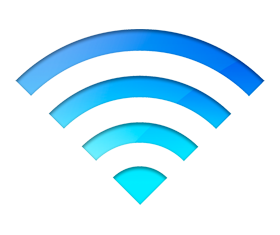 | |
| Pillars of Creation, Eagle Nebula, Taken by Hubble Space Telescope |
Charge-Coupled Devices (CCDs)
CCDs are sensitive light detectors that were invented by researchers at Bell Labs working on memory storage. They were trying As anyone who has used the Clay Telescope will know, CCDs are important to astronomers because they allow them to take clear images and data of the objects they are observing. Though not invented by them, astronomers recognized the potential for CCDs to be used for telescope imaging and adapted the technology to suit their needs. This innovation paved the way for digital imaging as we know it and today millions of people carry a CCD in their mobile phones.
WiFi
WiFi is one of the most important technologies in our lives today and its availability can make or break a budding coffee shop. It allows us to connect to the Internet and other devices from many locations without physically connecting our computer. WiFi was invented by John O'Sullivan, an Australian astronomer who used techniques from radio astronomy. Dr. O'Sullivan has even said that "Curiously, it was a failed experiment to detect exploding mini black holes the size of an atomic particle that led to this work."
These inventions are just some of many invaluable technological developments that have come into everyday use because of astronomy. While technology transfer itself hardly justify the economic cost of astronomy research (that justification comes from emphasis on the long-term and understanding the Universe), the importance and impact of astronomy is evident all around us, whether you look up at the stars or down at the lens of your digital camera to take a CCD enabled selfie.


Thanks for this great post, Carter! Glad to know we astronomers are good for something! ;)
ReplyDelete